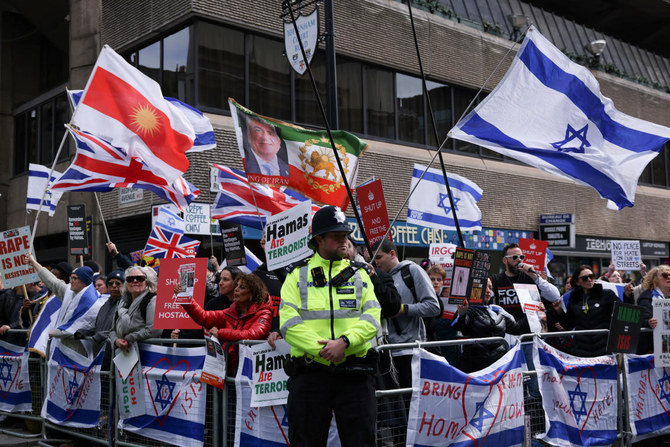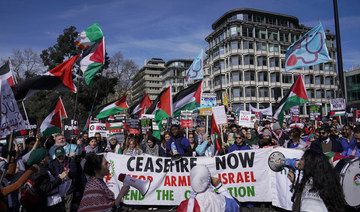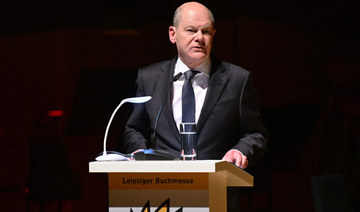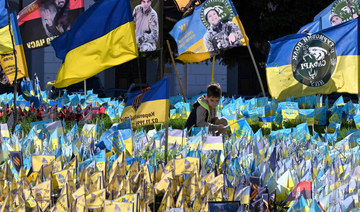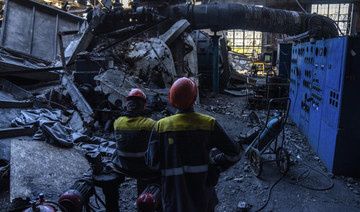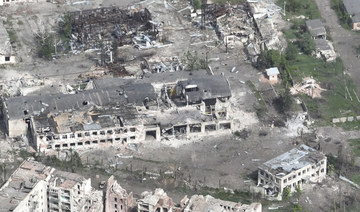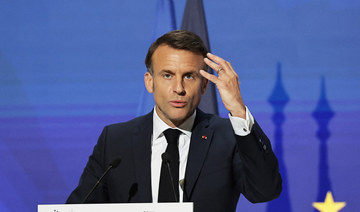LONDON: London’s police force has been forced to issue two apologies after officers threatened to arrest an “openly Jewish” man if he refused to leave the area around a pro-Palestinian march because his presence risked provoking the demonstrators.
Gideon Falter, chief executive of the Campaign Against Antisemitism, was wearing a traditional Jewish skullcap when he was stopped by police while trying to cross a street in central London as demonstrators filed past on April 13.
One officer told Falter he was worried that the man’s “quite openly Jewish” appearance could provoke a reaction from the protesters, according to video posted by the campaign group. A second officer then told Falter he would be arrested if he refused to be escorted out of the area because he was “causing a breach of the peace.”
London’s Metropolitan Police Service on Friday afternoon apologized for the language the officer used in describing Falter’s appearance, but said counter demonstrators had to be aware “that their presence is provocative.”
The Met later deleted that apology from its social media accounts and issued a second statement.
“In an effort to make a point about the policing of protest we caused further offense,” the force said. “This was never our intention. We have removed that statement and we apologize.”
“Being Jewish is not a provocation. Jewish Londoners must be able to feel safe in the city.”
The episode highlights the challenges London police face amid the boiling tensions surrounding the war in Gaza, with some Jewish residents saying they feel threatened by repeated pro-Palestinian marches through the streets of the British capital.
While the marches have been largely peaceful, many demonstrators accuse Israel of genocide and a small number have shown support for Hamas, the group that led the Oct. 7 attack on Israel and which has been banned by the British government as a terrorist organization.
The Met has deployed thousands of officers during each of the dozen major marches as it sought to protect the rights of the pro-Palestinian protesters and prevent clashes with counter-demonstrators and Jewish residents.
Following Falter’s confrontation with police, the Campaign Against Antisemitism issued a call for Londoners to exercise their right to walk wherever they choose on April 27, when another pro-Palestinian march is scheduled.
In response, the Met emailed Falter about what it described as his intention to “protest” next week and offered to meet with him to discuss ways to “ensure we can police the event as safely as possible,” according an exchange of correspondence released by the campaign group.
Falter rejected the idea that he was staging a protest, saying he was planning to go for a walk as a “private individual” and others might choose to join him.
“Unfortunately @MetPoliceUK is missing the point,” he said on the social media site X. “This is not a protest or counterprotest. Anyone who wishes to walk around London on Saturday 27th April … is free to do so. Even if they are ‘quite openly Jewish.’”



